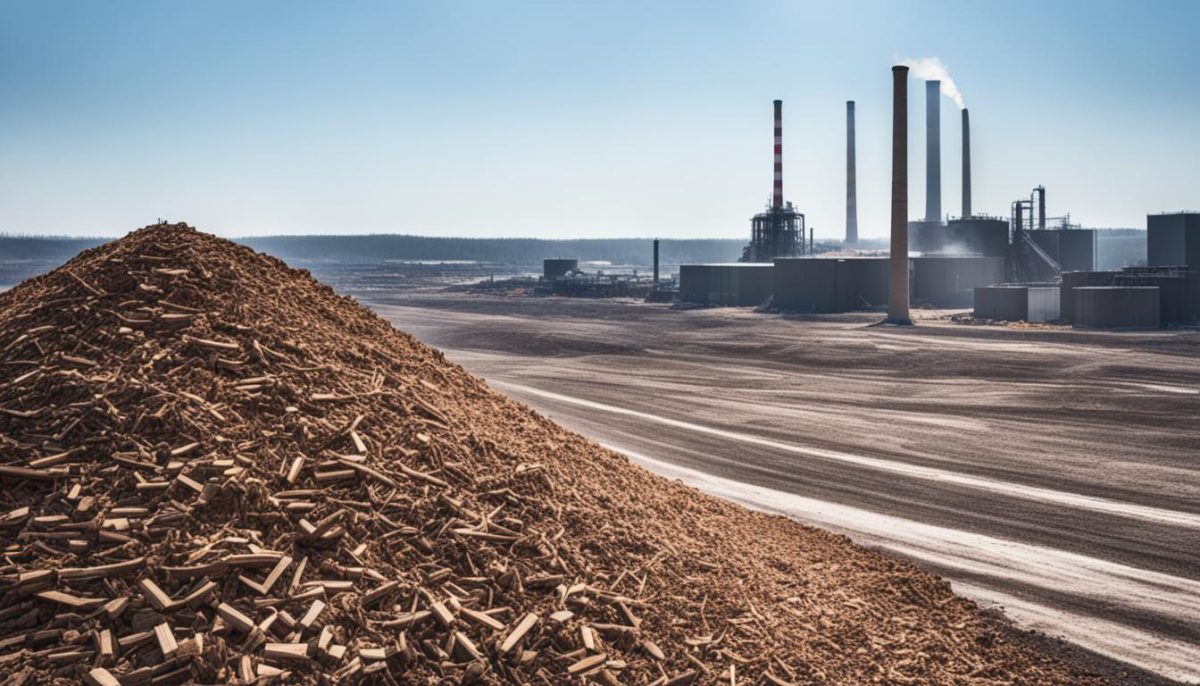Welcome to our article on the potential disadvantages of using biomass as an alternative fuel source. While biomass is undoubtedly a renewable energy option with numerous benefits, it also carries a unique drawback that sets it apart from other alternative fuels available in the market.
Before we delve into this disadvantage, let’s first understand the concept of biomass as a renewable energy source. Biomass refers to organic materials derived from plants and animals that can be used to produce heat, electricity, and other forms of energy. Examples of biomass include crops, wood, and agricultural waste.
Now, let’s explore the specific disadvantage of using biomass that other alternative fuels do not have. By gaining insights into these drawbacks, we can better appreciate the trade-offs associated with utilizing biomass as an alternative fuel option.
Environmental Impact of Biomass Energy Production
When exploring the use of biomass as a renewable energy source, it is essential to consider its environmental impact. While biomass energy production offers numerous benefits, it also poses significant disadvantages that must be taken into account.
A key concern surrounding biomass energy production is its emissions. Burning biomass releases greenhouse gases such as carbon dioxide, which contribute to climate change. This makes it crucial to carefully manage and monitor the combustion process to minimize emissions and maximize efficiency.
Another environmental disadvantage associated with biomass energy production is deforestation. To meet the demand for biomass feedstock, forests are often cleared to make way for dedicated energy crops. This can result in the loss of valuable ecosystems and biodiversity. Sustainable land management practices and the use of agricultural residues can help mitigate this impact.
Furthermore, biomass energy production requires significant land use. Large areas of land are needed to cultivate energy crops, which can compete with food crops and natural habitats. Implementing land-use strategies that prioritize sustainable practices, such as mixed cropping and agroforestry, can help reduce the overall land footprint of biomass energy production.
It is important to recognize that biomass as a renewable energy source is not without its environmental trade-offs. The emissions, deforestation, and land use concerns associated with biomass energy production must be carefully evaluated and managed to achieve a sustainable energy future.

Economic and Practical Challenges of Biomass Energy
While biomass energy presents itself as a viable alternative to traditional fossil fuels, there are several economic and practical challenges that need to be considered. These challenges, though not insurmountable, play a crucial role in determining the feasibility of widespread biomass energy adoption.
One of the major economic challenges is the cost associated with biomass production. Unlike fossil fuels, which have well-established supply chains and distribution networks, biomass production involves additional expenses such as harvesting, processing, and transportation. These factors contribute to higher production costs and can make biomass energy less competitive in the market.
Furthermore, the practical challenges of biomass energy extend to storage and logistics. Biomass needs to be stored properly to maintain its energy content, which can be particularly challenging due to its relatively low energy density and susceptibility to degradation. Additionally, the logistics of transporting biomass from the production site to energy generation facilities can be complex and expensive, adding another layer of practical hurdles.
While these economic and practical challenges pose obstacles to the widespread adoption of biomass energy, advancements in technology and ongoing research efforts aim to address these limitations. Innovations in efficient biomass production methods and improved logistics infrastructure are imperative to overcome these challenges and unlock the true potential of biomass energy as a sustainable renewable energy source.

